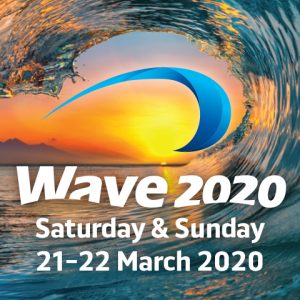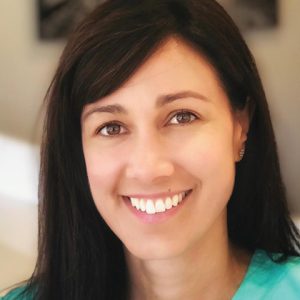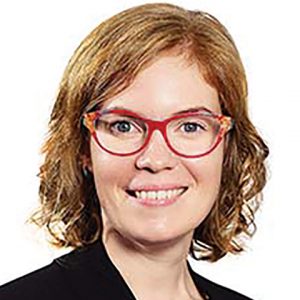Education @ WAVE 2020
Find out what’s on at WAVE 2020 at what time here…
- 4 Workshops on Saturday Morning
- Lectures Saturday Afternoon
- Sundowner Saturday PM
- Lectures All Day Sunday
- Up to 40.5 CPD & 27T (Including optional assessments)
Delegates on Saturday AM are allocated into groups and rotate through each workshop once during the morning.

Dr Olivia MacVie
Anterior Eye Disease Grand Rounds (T)
Summary: A presentation and group discussion of a collection of slightly unusual clinical cases selected to challenge your diagnostic and management skills
Learning Objectives :
- To broaden your diagnostic skills in certain scenarios
- To broaden your knowledge of management options
- To encourage lateral thinking when faced with challenging clinical presentations
Repeats x 4 from 8.30 – 9.30am / 9.30 – 10.30am / 11.05 – 12.05pm & 12.05 -1.05pm


Dr Antony Clark
Managing Glaucoma Suspects (T)
Summary Determining if a patient has glaucoma can often be a difficult task in early disease due the inherent variability in optic nerve head morphology. This workshop will use clinical examples to emphasise the importance of clinical assessment and the utility of ancillary tests (OCT and fields) in differentiating true glaucomatous optic neuropathy from other causes of optic nerve pathology. A suggested algorithm for follow-up of glaucoma suspects and when to refer will be discussed.
Learning Objectives
- Review the high-risk features for glaucoma and differentiate these from non-glaucomatous optic nerve changes
- Understand the importance of ancillary tests in monitoring for glaucoma suspects for the development of glaucoma
- Understand when it is safe to follow-up and when to refer glaucoma suspects
Repeats x 4 from 8.30 – 9.30am / 9.30 – 10.30am / 11.05 – 12.05pm & 12.05 -1.05pm


Jason Holland & Helen Gleave
Assessing Dry Eye – A Practical in-Practice Approach (T)
Summary: In this workshop the do’s and don’ts of how to identify and classify dry eye disease in a range of practice scenarios will be discussed. Techniques for assessing the tear film and eyelid will be demonstrated, with the opportunity to take a hands-on approach. Different approaches to management will be discussed, enabling optometrists to formulate a treatment plan depending on their clinical findings and treatments available in a variety of practice settings
Learning Objectives
- Understand the diagnosis methodology of Dry Eye Disease
- Understand the relevance of meibomian gland heat and expression in the management of dry eye disease
- Understand the TFOSS DEWS II Step 1 approach to the management of Dry Eye Disease
Repeats x 4 from 8.30 – 9.30am / 9.30 – 10.30am / 11.05 – 12.05pm & 12.05 -1.05pm



Liz Jackson
The ABC’s of Binocular Vision (non strabismus) for the Busy Optometrist
Summary: Do you feel confident with performing and interpreting binocular vision and accommodation tests? Children and adults regularly present with symptoms of binocular vision and accommodation dysfunction and optometrists are ideally placed to assess, diagnose and manage these issues. This workshop aims to revise and explore the indications for these tests, how to do them and what to do with the results.
Learning Objectives
- To revise the symptoms of binocular vision and accommodative dysfunction
- To detail the tests of accommodation and vergence that can easily be undertaken by every optometrist
- To develop a framework for diagnosis and management


30 Min Lectures: With Optional Assessment
Saturday PM Lectures Commence 1.55 pm.
- Dr Olivia MacVie
Managing Ocular Inflammation (T) - Dr Antony Clark
Paediatric Pearls (T) - Liz Jackson
Managing High Plus in Kids
Afternoon Tea Break
- Dr Alex Hui
Antibiotic Selection in Infection Management (T) - Dr Lauren Ayton
Classification and Risk Prediction in Age-Related Macular Degeneration - Jason Holland
How to Mix the Perfect Dry Eye Cocktail (T)
Close 5.35 pm






30 Min Lectures: With Optional Assessment
Sunday AM Lectures Commence 8.30 am.
- Dr Lauren Ayton
Imaging in AMD: New Signs to Know - Jack Phu
Glaucoma or Not Glaucoma – That is the Question (T) - Dr Alex Hui
Pain Management for Optometrists (T)
Morning Tea
- Dr Alex Hui
Oral Antibiotics and Antivirals in Eye Care (T) - Dr Kate Gifford
The Visual Environment & Myopia – What to Tell Parents - Jack Phu
Pre-Perimetric Glaucoma – Treat or Monitor? (T)
Lunch Break




30 Min Lectures: With Optional Assessment
Sunday PM Lectures Commence 12.55 pm.
- Jack Phu
An Update on Recent Glaucoma-related Clinical Studies (T) - Dr Lauren Ayton:
Advanced Therapeutics: Ocular Gene Therapy Now, and in The Future - Dr Kate Gifford
Contact Lenses for Kids (T)
Afternoon Tea Break
- Dr Kate Gifford
Myopia Management: Clinical Decision Trees (T) - Jack Phu
Recent and Emerging Topical Therapies for Glaucoma (T) - Nabill Jacob
Your Patients and Low Vision - Dr Dimitri Yellachich
Update on Treatment Options for Dry Macular Degeneration: Current and Future
Conference Close 5.00 pm





